Major Power Relations
Your Present Location: PROGRAMS> Major Power Relations-
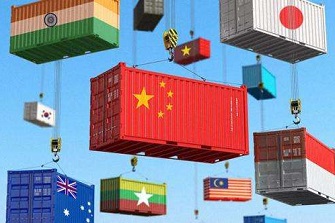
Ding Gang: Rejecting RCEP won’t make India a winner
After India decided not to join the Regional Comprehensive Economic Partnership (RCEP), some officials and scholars inside the country claimed it is "a win for all those protecting national interests." But it is China that is likely to be the real winner as with India's withdrawal, China has lost a potential challenger. Indian media reports said that New Delhi's decision not to join the free trade pact will prevent Chinese products from flooding the Indian market, which may have dealt a body blow to Indian medium and small enterprises.
2019-11-07 -
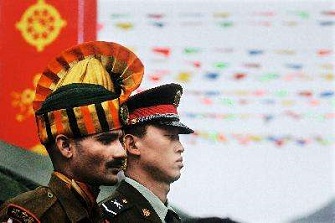
India’s decision on border likely to cause more frictions with China
hinese officials and experts on Thursday slammed India's unilateral move to change the China-India border status by formally establishing two new union territories in the Kashmir region, saying that the move challenges China's sovereignty and warning that India's decision risked border frictions despite bilateral ties developing on a progressive track. China voiced strong dissatisfaction and firm opposition to the Indian government's announcement on Thursday of implementation of the Jammu and Kashmir Reorganisation Act.
2019-11-06 -
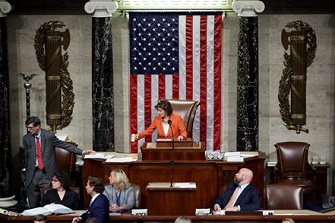
US impeachment of Trump fuels Chinese interest
The Chinese public has shown tremendous interest in the US Congress' impeachment inquiry into President Donald Trump as the proceedings took a remarkable turn on Thursday, with many viewing the dramatic episode as just pure entertainment, while others see it through the perspective of how it will impact trade negotiations between China and the US. However, for many, the impeachment process and underlying bitter, messy reality of the US political system offers a valuable lesson on the importance of political stability and national unity and a stark reminder that China must stick to its own system of socialism with Chinese characteristics.
2019-11-04 -
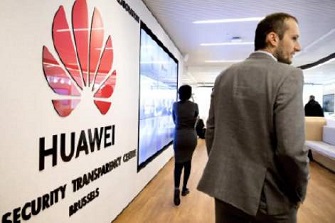
John Ross: Huawei access to 5G in UK involves a struggle as Washington continues interference
Over the weekend, the UK's Sunday Times leaked information about a fight taking place within the British government over whether or not to allow Huawei to participate in Britain's development of its 5G network. It is directly in the UK's economic interest that Huawei participates in developing the country's 5G network. But this involves a struggle in the coming weeks as it is clear that the US' Trump administration is continuing to intervene in the internal affairs of not only China, but of the UK.
2019-11-01 -
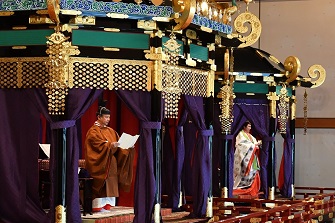
Zhang JIngwei: Romance of the Three Kingdoms, US, China and Japan
In the afternoon of October 22, the enthronement ceremony for Japan’s new Emperor Naruhito was held. Distinguished guests who witnessed the event included heads of states, royalties and high-ranking government officials from about 180 countries. Among them was Wang Qishan, President Xi Jinping’s special envoy and China’s Vice President. Attention was quickly drawn to a few noteworthy observations. Of the special envoys who attended the ceremony, Vice President Wang was of the highest level – i.e., a full state-level representative. In contrast, the US only sent a ministerial-level dignitary.
2019-10-30 -
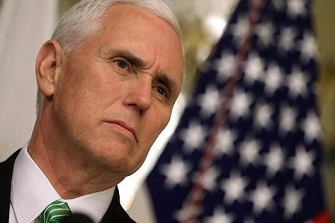
Pence renews hostile speech, shows 'arrogance, hypocrisy, bias and lies on China'
US Vice President Mike Pence delivered a hostile speech aimed at China during an event organized by the Washington-based think tank Wilson Center on Thursday, with Chinese analysts saying Pence and US President Donald Trump are playing the bad cop - good cop game before the highly anticipated China-US summit in November in a bid to gain leverage on trade talks. Still, the vice president's latest remarks included positive signals compared to last year's speech, which indicated a consensus between both countries is increasing, analysts said.
2019-10-30 -
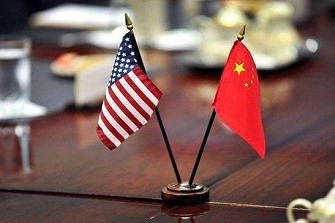
Wang Wen& Liu Ying: Ten areas where China and US need to focus
Substantial progress has been made in the latest round of China-US trade consultations on October 11. The volatile trade dispute which has taken global economic circles by storm over the past year and a half hasn't led to the collapse of the two countries' trading relationship in at least 10 fields. Cooperation in ties hasn't evaporated but rather seems to be strengthening. Enhancing cooperation in these 10 areas will not only be a key to stabilize ties but also an effective way to reverse global pessimism.
2019-10-25 -
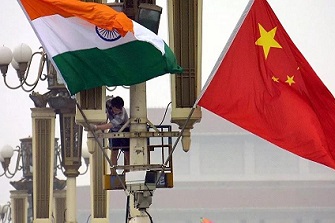
Lin Minwang: China and India, Looking Into the Future
Chinese President Xi Jinping and Indian Prime Minister Narendra Modi held their second informal meeting on October 11-12 in the southern Indian city of Chennai. During the meeting, Xi said China and India, as ancient civilizations with several thousand years of history, have carried on exchanges and mutual learning until the present. The two countries’ ancestors overcame various obstacles to carry out extensive exchanges and promote the development of literature, art, philosophy and religion, which have greatly benefited both sides.
2019-10-25 -
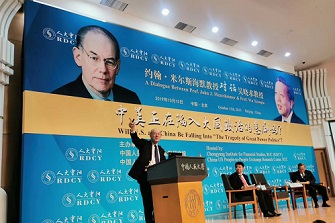
Can tragedy of great power politics be avoided?
At "A dialogue between Prof. John J. Mearsheimer and Prof. Wu Xiaoqiu: Will the US and China be falling into 'the tragedy of great power politics?'" organized by Chongyang Institute for Financial Studies, Renmin University of China, on October 15, Mearsheimer and Wu exchanged insights on China's rise, China-US relations with the audience.
2019-10-23 -
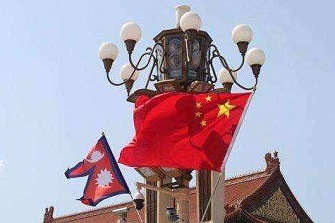
China, Nepal upgrade ties
The two sides should build an all-round cooperation pattern, carry out the construction of a trans-Himalayan connectivity network, and expand exchanges and cooperation in various fields, Xi said. The new relationship, featuring development and prosperity and dubbed a 'trans-Himalaya' friendship, shows that Nepal has realized that China is a significant partner that could help it realize its development prospects, especially economic development.
2019-10-23 -
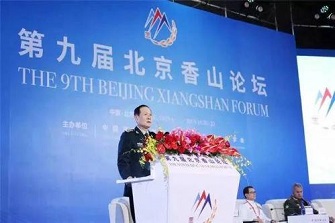
Regional security architecture should emphasize inclusiveness
The 9th Beijing Xiangshan Forum kicked off in Beijing on Monday. Chinese State Councilor and Minister of National Defense Wei Fenghe delivered a keynote speech at the opening ceremony. Wei clarified China's position on a variety of key issues. Minister Wei pointed out that regional affairs should be handled by regional countries. China is gaining an increasing influence in the Asia-Pacific region and has an increasing problem-solving capability regarding regional affairs, including security issues. China believes that regional affairs must be solved by regional members through cooperation and coordination.
2019-10-22 -
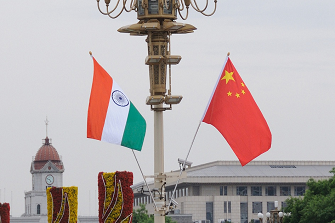
Grudges behind India's academic restrictions against China
India's new restrictions on academic exchanges with China immediately triggered widespread speculation. Highly vigilant of China's rapid rise, the Indian government has been known for its strict scrutiny of collaborative programs involving Beijing. But still, the new regulations – all Indian educational institutes need a nod from the Ministries of Home and External Affairs before seeking tie-ups with Chinese counterparts – is jaw-dropping for the academic circle.
2019-10-22 -
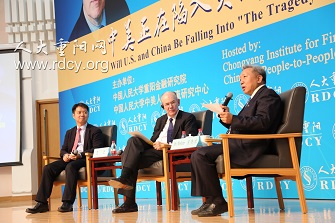
Wang Wen: Finance trumps military power in global politics
We think tank scholars often summarize the lessons of the US decline. A major lesson is that the successful great power of the 21st century must rely not on squeezing others but on its own governance. If in the future, China gets an upper hand on the US in infrastructure, 5G, social security, quality of life, technological innovation and education, Beijing will emerge the obvious winner. But this can't be achieved by tragedies precipitated by military or other conflicts. Hence we need to avoid conflict with the US.
2019-10-22 -
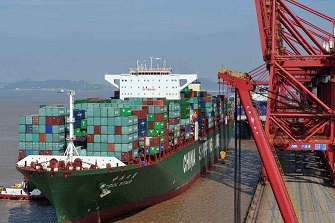
He Weiwen: America is Yielding China Trade to ASEAN and EU
Official Chinese customs data for H1 2019 shows that the U.S. was replaced by ASEAN as China’s second largest trading partner. The predominance of Asia and Europe in China’s global trade pattern does not mean that China neglects trade with the U.S. On the contrary, China attaches great importance to a strong, stable, and sustainable trade relationship with the U.S. The early conclusion of an equal and mutually beneficial trade deal will certainly be good for the U.S., for China, and for the whole world.
2019-10-21 -
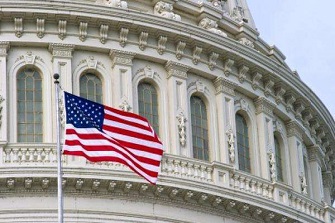
William Jones: Is mob rule taking over in Hong Kong or in the U.S. Congress?
On October 15, the U.S. House of Representatives passed on a voice vote, the Hong Kong Democracy and Human Rights Act. This legislation would give the right to the U.S. Congress to determine whether or not Hong Kong, a legitimate part of China, has maintained the autonomy granted to it by China's central government under the "One country, Two systems" principle. If they judge that it hasn't, the U.S. will reserve the right to withdraw the status of Hong Kong as a free market.
2019-10-18 -
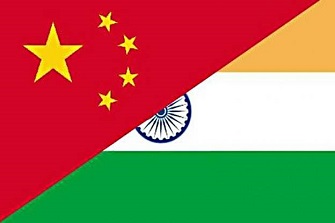
Xi and Modi head to second informal summit
2019-10-18 -
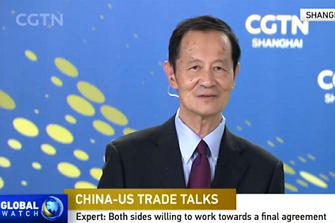
Expert on 'substantial progress' of China-U.S. trade talks
Negotiators say "substantial progress" has been made after two days of trade talks between China and the United States. They discussed agriculture, intellectual property and expanding trade and technology transfers. Chinese President Xi Jinping said a healthy and steady relationship is good for both countries and the world. And U.S. President Donald Trump gave "tremendous credit" to China for the progress in talks. The two sides also agreed to work towards a final agreement.
2019-10-16 -

China and Africa: Renewing friendship and expanding cooperation
What is the first word that comes to your mind when someone talks about China-Africa relationship? Friendship, many Chinese people would say. Yes, China and African countries enjoy a time-honored friendship. More than 600 years ago, Chinese navigator Zheng He made seven trips to the Western Ocean, four trips to Africa. Moreover, at the Bandung Conference in 1955, then Chinese premier Zhou Enlai shook hands with the African leaders for the first time. By the beginning of this century, the establishment of the Forum on China-Africa Cooperation had opened a new door of friendship between China and Africa.
2019-10-15 -

Strengthened China-Nepal ties could help Nepal go further
2019-10-15 -
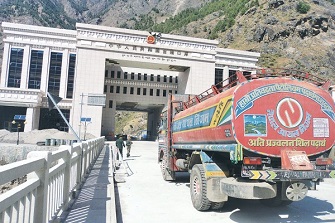
Long Xingchun: Xi’s India and Nepal visits bring trilateral ties in focus
Chinese President Xi Jinping's informal meeting with Indian Prime Minister Narendra Modi has made waves with bilateral ties getting a fillip amid a new warmth pervading the relationship. Xi's ensuing visit to India's northern neighbor Nepal is the first by a Chinese president in 23 years and has lifted the bilateral relations to a new level. Since the two countries established diplomatic ties in 1955, China and Nepal have maintained good relations.
2019-10-14
























































































 京公网安备 11010802037854号
京公网安备 11010802037854号





